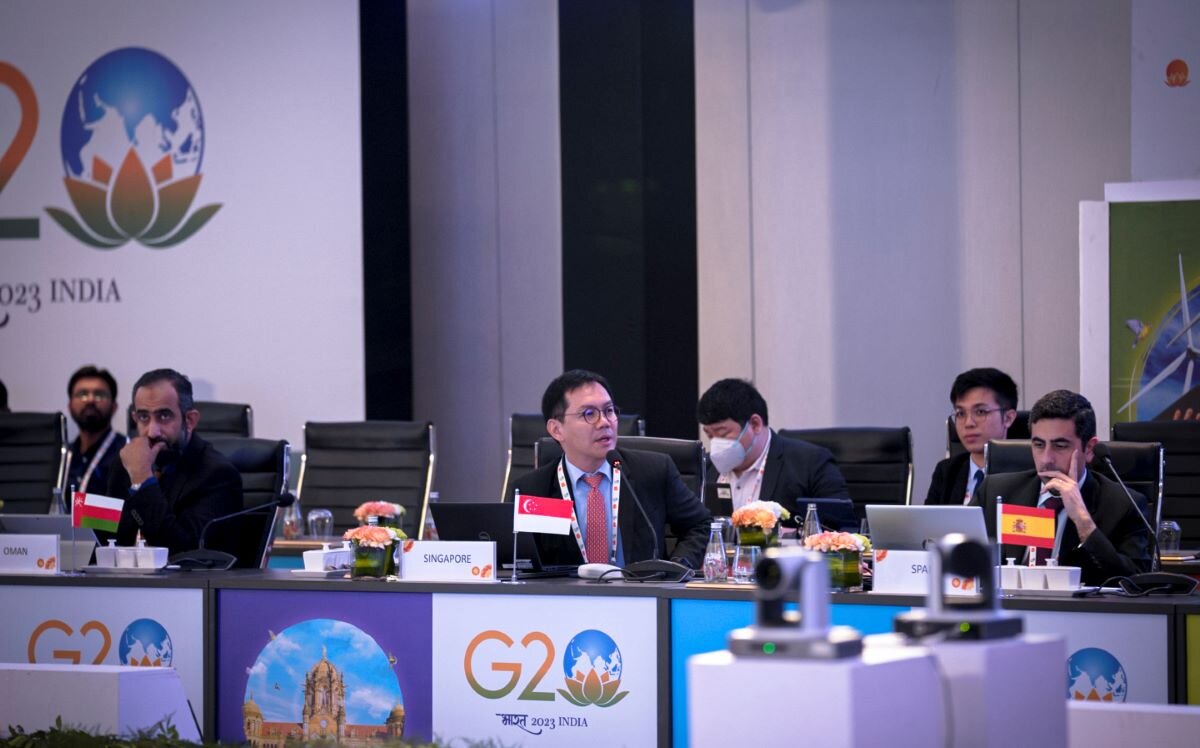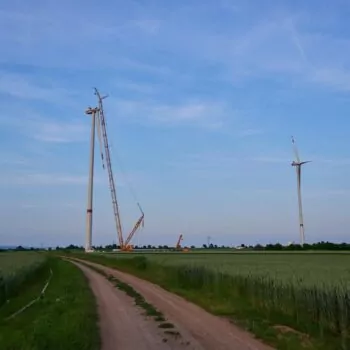- Amid a year of ongoing geopolitical tensions with energy and supply chains at the heart, record growth in renewable energy and a marked slowdown of fossil fuel demand growth, the G20 energy ministerial was an important temperature take over how the geopolitics of the energy transition are playing out.
- Despite the best efforts of the Indian presidency, G20 energy ministers were unable to make the progress needed on setting an unambiguous global goal of at least tripling renewable energy capacity to 11 TW by 2030, together with implementation strategies to achieve that goal.
- They also failed to acknowledge the necessity of phasing down the production and use of fossil fuels — the main driver of the climate impacts ravaging the planet. Ministers did not even reiterate last year’s recognition of the need to accelerate the phasedown of unabated coal generation.
- Progress was made on stepping up energy efficiency and deployment of distributed renewable energy technologies, and ministers recognised the need to increase basic energy access and provide low-cost finance for the clean energy transition in developing countries.
- The Indian presidency should push for a stronger outcome at the G20 leaders’ summit in Delhi in September. This also clearly shows the hard work ahead for the United Arab Emirates in building support for its recently set-out vision for COP28 in Dubai.
Quotes
Alden Meyer, Senior Associate at E3G, said:
“With temperature records being set daily around the world and the impacts of climate change spiralling out of control, the world needed to hear a clarion call to action from the G20 energy ministers meeting that just wrapped up in Goa.
Instead, what we got was very weak tea indeed, with the failure to set strong goals and implementation plans for at least tripling deployed renewable energy capacity worldwide by 2030 and sharp divisions on display around the need for a fair, fast, and equitable transition away from fossil fuels.
The Indian presidency must not accept this outcome as the final answer. Instead, it should push G20 leaders to put the interests of their people ahead of those of the fossil fuel industry when they meet in September for their summit in Delhi. The UAE’s incoming COP28 presidency now has an even clearer sense of the fault lines among major countries in reaching the transformational outcome it is seeking for the Dubai climate summit in December and must intensify its discussions with ministers and leaders in the weeks ahead.”
Madhura Joshi, Senior Associate at E3G, said:
“The Indian G20 presidency brought a positive agenda to the table — accelerating energy efficiency and renewable energy, phasing out fossil fuels, and increasing finance for the energy transition — some of these discussed for the first time in the G20. But the final text marks out the divisions between countries.
Now the pressure lies on G20 leaders to set an ambitious agenda in September. Progress in the G20 will be critical in determining the tone and success of COP28.”
On renewables, Lisa Fischer, Programme Lead at E3G, said:
“Wind and solar are mature technologies that will, notwithstanding national pathway choices, shoulder the bulk of energy sector decarbonisation and demand growth globally. A clear commitment to tripling renewable energy capacity installed to 11 TW by 2030 would thus have been an important market signal by the G20. Yet, an unambiguous signal was sacrificed to a quarrel over net-zero compliant technologies.
At least, India successfully brokered support for a recognition that distributed renewables are critical, not only to tackling energy access challenges this decade, but also to empowering people and economic growth.”
On fossil fuels, Anusha Mata, Senior Policy Advisor at E3G, said:
“There are clear divisions among energy leaders on the pathway to securing a clean energy future. The weak language on fossil fuel phase down and absence of any mention of coal – the most polluting energy source – is a clear backtracking on commitments from last year’s G20 Bali Declaration.
This September we need to see G20 leaders ramp up their ambition and agree to language that at least supports the UAE’s COP28 vision for an accelerated phase down of all fossil fuels and unabated coal. Anything less is a clear threat to progress on a clean transition and will push 1.5°C warming further out of reach.”
On energy efficiency, Annisa Sekaringtias, Senior Researcher at E3G, said:
“For the first time, the G20 energy ministers agree on actions to reach the goal of doubling efforts in energy efficiency, the first fuel in the energy transition. At this point, it remains largely voluntary, putting responsibility on Brazil’s presidency next year to encourage countries to collaborate to translate the “Roadmap for Energy Efficiency” into reality.
40% of emissions reductions are expected to happen in developing economies, which currently receive less than 20% of clean energy investment. The new initiative to facilitate access to low-cost finance for energy transition is thus a critical step. Multilateral development banks need to respond to this in October at the World Bank annual meetings and the Joint-MDB Statement at COP.”
Available to comment
Madhura Joshi, Senior Associate, E3G (Indian geopolitics and policy, energy transition)
m: +91 9650783893 madhura.joshi@e3g.org
Alden Meyer, Senior Associate (multilateral climate and clean energy diplomacy, mitigation ambition, US policy & politics)
m: +1-202-378-8619, alden.meyer@e3g.org
Annisa Sekaringtias, Senior Researcher (clean energy finance, energy efficiency, distributed renewables, energy systems), annisa.sekaringtias@e3g.org
Anusha Mata, E3G Senior Policy Advisor (fossil fuel transition, coal phase-out)
m: +44 (0)7817 560 411, anusha.mata@e3g.org
Lisa Fischer, Programme Lead (energy geopolitics, renewables, fossil fuels and gas)
m: +44 (0)7710 167754, lisa.fischer@e3g.org
Notes to Editors
- E3G is an independent climate change think tank with a global outlook. We work on the frontier of the climate landscape, tackling the barriers and advancing the solutions to a safe climate. Our goal is to translate climate politics, economics and policies into action. About – E3G
- For further enquiries email press@e3g.org or phone +44 (0)7783 787 863
- You can now receive the very latest news, developments and exclusive analysis via E3G’s WhatsApp broadcast for journalists. Sign up here.
- E3G analysis of reduction of fossil fuel use (abated and unabated) based on IEA net-zero scenario:

Source: E3G analysis of IEA (2022) World Energy Outlook 2022, Table A.1c, p. 445

